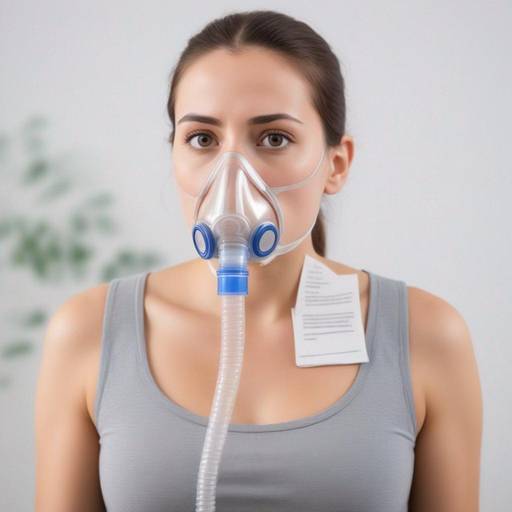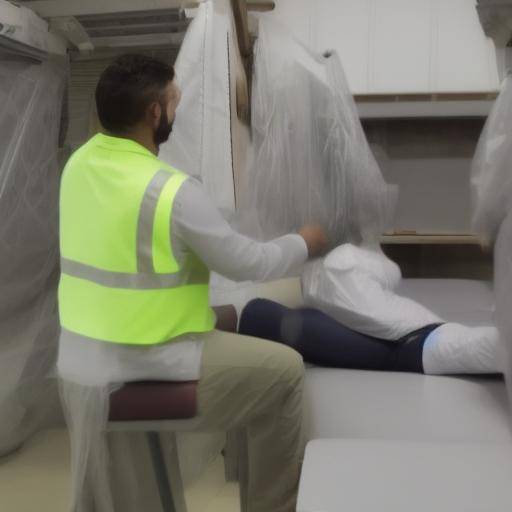
In modern society, stress has become a constant that affects many people. The accelerated pace of daily life, labour pressures and personal concerns can cause chronic stress, which in turn negatively affects physical and emotional health. However, there is a simple and powerful practice that can help mitigate these effects: deep breathing. In this article, we will explore in depth the positive impact of deep breathing on stress reduction, its connection with relaxation and physical well-being, and offer practical advice to incorporate this technique into everyday life.
Introduction
In the search for effective strategies to manage stress, deep breathing has been highlighted as a valuable and accessible tool. Through conscious breathing control, it is possible to activate the parasympathetic nervous system, triggering a relaxation response in the body. This simple approach has the potential to reduce anxiety, improve mental clarity and promote a general state of calm and well-being.
History and Background
The practice of deep breathing has deep roots in various cultural traditions and knowledge systems. From ancient Eastern wisdom to modern disciplines of mind-body medicine, the importance of conscious breathing has been recognized over the centuries. In Eastern culture, disciplines such as yoga and tai chi have attached great importance to breathing techniques as essential elements of integral well-being. In Western tradition, prominent figures as the pioneer of stress Dr. Hans Selye and experts in integrating medicine have advocated for the fundamental role of breathing in stress management.
Analysis in Deep
The benefits of deep breathing go beyond mere relaxation. Scientific studies have shown that this practice can positively influence cardiovascular health, reduce blood pressure and promote better tissue oxygenation. In addition, conscious breathing can be an effective tool to regulate emotions, improve concentration capacity and strengthen the immune system. By learning to breathe more consciously, people can cultivate a sense of connection with their body and environment, which contributes to greater mental and emotional well-being.
Comprehensive review
The incorporation of deep breathing in daily life can benefit people of all ages and physical conditions. From high-performance athletes looking to optimize their performance to individuals seeking to relieve anxiety and improve their sleep quality, deep breathing offers a universally relevant approach to stress management. Breathing techniques can adapt to the specific needs of each individual, making them a flexible and customizable tool to promote physical and emotional well-being.
Comparative analysis
When analyzing the relationship between deep breathing, relaxation and physical well-being, it is evident that these dimensions are intrinsically interconnected. Deep relaxation facilitated by conscious breathing can have a direct impact on reducing muscle tension, reducing physiological response to stress and promoting a general balance in the body. This combination of effects contributes to a state of physical well-being that has a direct impact on people's quality of life.
Practical Tips and Accessible Tips
For those who wish to integrate deep breathing into their daily routines, there are several practical strategies that can facilitate the process. It is recommended to begin with short sessions of conscious breathing, gradually increasing the duration as more familiarity with practice is acquired. The creation of an environment conducive to relaxation, such as a quiet room or an outdoor space, can favor the effectiveness of deep breathing. In addition, it is beneficial to establish a regular routine, incorporating conscious breathing in key moments of the day, such as awakening, before meals or before bedtime.
Perceptions of Industry and Opinion of Experts
The views of experts in the field of health and well-being underscore the importance of deep breathing as an effective tool to counter the harmful effects of chronic stress. Health professionals, such as therapists, personal trainers and doctors, have incorporated breathing routines into their practices to help their clients improve their physical and emotional well-being. The scientific community increasingly supports the effectiveness of breathing techniques to improve global health, which further validates its relevance in the modern context.
Case Studies and Practical Applications
Cases of study that illustrate the concrete impact of deep breathing in everyday life are essential to demonstrate their effectiveness. From testimonies of individuals who have experienced a significant reduction in stress to accounts of athletes who have optimized their performance through breathing techniques, these concrete experiences offer a valuable insight into the applicability and tangible results of deep breathing practice.
Future Trends and Predictions
As awareness of the importance of mental and emotional health increases, breathing techniques, including deep breathing, are expected to become more relevant in the area of health and well-being. With the support of scientific research, a growing number of people, businesses and health professionals will incorporate these practices as key components of their welfare programmes. Emerging technologies, such as applications and devices designed to support and guide conscious breathing, will also play a key role in the widespread diffusion and adoption of these methods.
Conclusion
In conclusion, deep breathing represents a powerful and holistic tool for stress management, the promotion of relaxation and the promotion of physical and emotional well-being. By adopting this practice on a regular basis, people can cultivate a greater capacity to respond calmly and balancedly to the demands of modern life. Deep breathing is not only an individual transformative tool, but also a constant reminder of the innate connection between the body, mind and spirit.
Frequently asked questions
What are the benefits of deep breathing compared to normal breathing?
Deep breathing allows greater oxygenation of the body and activation of the parasympathetic nervous system, which contributes to a reduction of stress and a greater sense of calm compared to superficial or normal breathing.
How long do you need to practice deep breathing to experience your benefits?
The benefits of deep breathing may feel even after a few minutes of practice. However, for more durable results, it is recommended to practice regularly for at least 10 to 20 minutes a day.
Is deep breathing adequate for all, regardless of their physical condition?
Yes, deep breathing is a safe and beneficial practice for most people, regardless of their physical condition. However, it is advisable to consult a health professional before starting any new practice, especially for those with pre-existing medical conditions.
Can deep breathing help in the control of emotions?
Yes, deep breathing has proven to be effective in regulating emotions by activating the parasympathetic nervous system, which can reduce anxiety and improve mental clarity.
What are the best deep breathing techniques for beginners?
For beginners, the simplest techniques usually include abdominal breathing, which focuses on taking air to the abdomen instead of breathing superficially at the top of the chest.
Are there specific moments of the day when deep breathing is more effective?
Deep breathing can be beneficial at any time of the day, but many find it useful to practice it in the morning to establish a calm state and at night to facilitate relaxation before sleeping.
Conclusion
Deep breathing is an accessible and powerful resource that offers an effective way to counter stress, promote relaxation and promote greater physical and emotional well-being. By adopting and maintaining a conscious breathing routine, people can empower themselves to face daily challenges with greater calm and mental clarity. This practice, supported by both ancestral tradition and modern science, represents an inexhaustible source of benefits for integral health. While the demands of modern life can be overwhelming, the ability to breathe consciously offers a way to serenity and inner strength.






















































